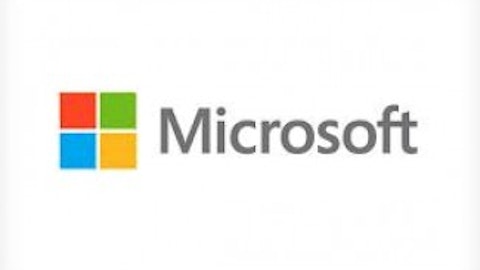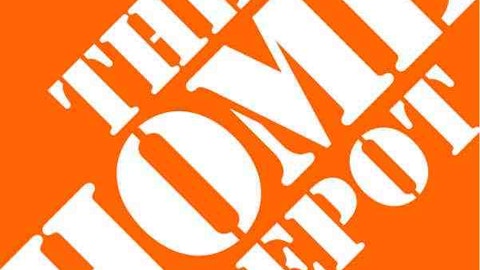In this strong market, only five components of the Dow Jones Industrial Average (INDEXDJX:.

Chasing the Oracle doesn’t always work
Berkshire Hathaway’s 5% stake in International Business Machines Corp. (NYSE:IBM) became public in November of 2011. Since then, the share price has been up and down, and is roughly back where it started. However, if you bought at or near one of a half-dozen peaks in the share price since late 2011, you could be down anywhere from five to 15% today, with revenue and earnings per share declining this year. From the latest earnings announcement:
The company said that a substantial second-half gain that it was expecting in its prior view of earnings per share will not likely be achieved the end of 2013. As a result, the company updated its prior full-year EPS expectations, including the impact of a second-quarter $1 billion workforce rebalancing charge, to at least $16.25, with the net impact of $0.45 driven by the elongated discussions for its larger divestiture project.
Simply put, management was just wrong about the business’ direction. Dig into the latest earnings report and you’ll see that International Business Machines Corp. (NYSE:IBM)’s biggest shortfall (down 12%) was in its hardware business, which accounts for roughly 15% of the company’s total revenues. Even more concerning, sales in the company’s “Growth” markets were flat for the quarter. The bottom line is this isn’t just the first two quarters of the year-management’s downward revision makes it clear that this isn’t going to change overnight. There are larger technology trends that are affecting International Business Machines Corp. (NYSE:IBM)’s business. Fool contributor Adrian Campos has more here.
Another tech stalwart in the red
A Google search for “the death of the PC” will net over 400 million results. Traditional desktop PC sales are on the decline. Per Gartner, PC shipments in Q2 of 2013 fell 10.9%, after an 11.2% decline in Q1, and a 4.9% and 8% drop in Q4 and Q3 of 2012 respectively . Again, probably not a shocker to anyone, but it’s a reminder that the way we compute is changing with the advent of mobile.
With nearly two thirds of Intel Corporation (NASDAQ:INTC)’s sales coming from its PC Client group, this decline is going to continue to weigh on the company’s results. However, the company is investing heavily in mobile processors, and this will stem the losses. The question remains: Will Intel Corporation (NASDAQ:INTC)’s growth into mobile computing make up for those losses, and bring back growth? Only time will tell.
The nature of commodities
Aluminum stalwart Alcoa Inc (NYSE:AA) is expecting global demand for its product to be up 7% for 2013, but the price of aluminum will continue to weigh on profitability. A strong management team, led by CEO Klaus Kleinfeld, continue to improve operational efficiency, and this will in turn pay off when aluminum prices rebound. Free cash flow has already begun improving. However, there’s a chance that, if you bought shares near one of the half-dozen peaks over the past 12 months, you’re down by more than 10%.
The demand for aluminum is expected to remain strong, but the question that Alcoa Inc (NYSE:AA) shareholders need to ask is a simple one: Is it worth waiting around for the commodity price to rebound?
Why should you sell?
The simplest reason for many of you may be to harvest the tax losses. While it’s more common to do this near the end of the year, good tax planning and portfolio management is a year-round exercise. In a strong market, this strategy can give you two advantages:
- If you’ve sold big winners, losses can cancel out any amount of taxable gains
- You can apply up to $3,000 ($1,500 for those married filing separately) above and beyond taxable gains against other income
So, not only can it reduce taxes on any gains against stocks you may have sold, but you can apply the balance against your regular income. Depending on your income tax bracket, this could be worth $500-$1,000 in tax savings against regular income.
Sell versus hold; final thoughts
Here’s the share price performance of these three over the past 12 months:

As you can see, all three stocks have seen periods of volatility, and there’s no reason to think this will change. The share price could move up or down relatively quickly from where it is today. With that in mind, part of your strategy should be on whether or not your long-term plans are to be invested in the company, and whether selling at a loss today and looking to add back later, is worth the risk of paying more and not ending up ahead of the tax man.
The bottom line is all three companies offer strong reasons to hold as well as legitimate reasons to sell. But if you want to capture tax losses today, it’s a safe bet the market will give you a good chance to buy back in at a decent price. Just be sure to reinvest those tax savings wisely.
The article 1 Reason You Should Sell These Dow Losers originally appeared on Fool.com and is written by Jason Hall.
Jason Hall owns shares of Intel. The Motley Fool recommends Intel. The Motley Fool owns shares of Intel and International Business Machines (NYSE:IBM).
Copyright © 1995 – 2013 The Motley Fool, LLC. All rights reserved. The Motley Fool has a disclosure policy.





